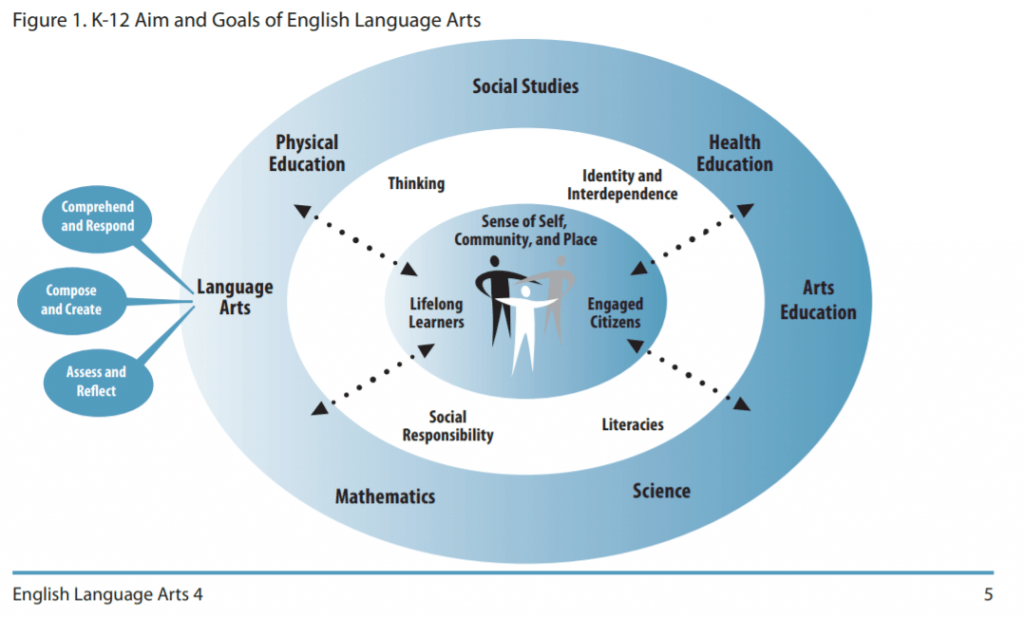Often I’ve heard that teachers will “teach to the test”. In a time where tests are being assessed for their validity and authenticity of student learning, I sometimes see technology being substituted as an “end point”. We teach technology because we feel like students “need” to know it. However, I feel that technology can be used as a way to build skills such as perseverance, problem solving, creativity, and collaboration.
So, what do schools need to do to prepare our students for their future?
Teachers 20 years ago couldn’t have predicted the world we live in now, neither can we predict what the world will look like in 20 years. The content that we teach changes, but the strategies we use to teach it, are not. I like this view of learning, because it means I don’t have to memorize content. I have to learn skills that help me learn better and more efficiently. We need to foster curiosity. When we are curious, we need skills to find and locate information, be able to confirm and construct meaning, and to evaluate information. These skills are useful if we are researching in a library or using a search engine like Google. When we learn these skills we can apply them not to just one technology, but all future technological advances. When I’m teaching code to elementary students, I emphasize that we repeatedly need to check our code as we progress, rather than at the end. I emphasize that I’ve never written a code correctly on my first try, and that it can be frustrating. I also tell them that I’m not going to help them *gasp*. They need to fail and help each other!
This also doesn’t mean we don’t teach how to use technology into our classroom. Just as abstinence-only sexual health education is proven to be ineffective, there cannot be abstinence-only digital education. We need to teach them how to become responsible digital citizens and how technology can help us reach our goals when we know how to use it effectively.
The Future of Schools
Are brick-and-mortar schools on their way out? The short answer for this is, no. While during the COVID-19 pandemic we have seen an increase in remote learning options that have benefitted many, it has not benefitted all. Education needs to be available to everyone. For many of our students, school is the only place they feel safe and cared for. The reality is, our workplaces would need to change first. For students to be at home, their parents also need to be at home. We also aren’t preparing all students for a life of academia or office work. Many skills need to be taught by a skilled person (teacher) in a safe, supervised setting. If its woodworking, mechanics, coding, mathematics, or writing, we need to assess and reflect on our work as we go.
Curriculum

Our curriculum places the learner at the center, then Broad Areas of Learning, followed by subjects. What this image shows is that we value Thinking, Identity and Independence, Social Responsibilities, and Literacies more than we value the outcomes. Yet as teachers we often get stuck on only presenting the outcomes, but we need to look at learners as a whole. We can’t only teach to the test or tech.

Wow! I agree with you that brick and mortar schools will stay relevant, and that we need to find ways to incorporate and foster curiosity and innovation. I love this quote, “Just as abstinence-only sexual health education is proven to be ineffective, there cannot be abstinence-only digital education.”
Your thoughts are inspiring Leah! It’s true that skills are needed to be taught by a skilled person in a safe and valued environment. Digital media and technology continue to evolve ata a dizzying pace, bringing extraordinary opportunities as well as real challenges for our nation’s young people.
Like Patricia, I really liked your connection to the sexual health curriculum. It really connected what you were saying to me. I appreciate how you also said that physical schools will always be relevant, and we need to adapt and keep current not only to keep students engaged and learning but to prepare them for their futures. Skills need to be explicitly taught, and we cannot assume that the students know how to do everything just because they use technology.
Loved your post, Leah! You’re exactly right. We cannot forget about the whole student. We must continue to support our learners and provide them with the necessary skills to be responsible citizens, digital or otherwise.